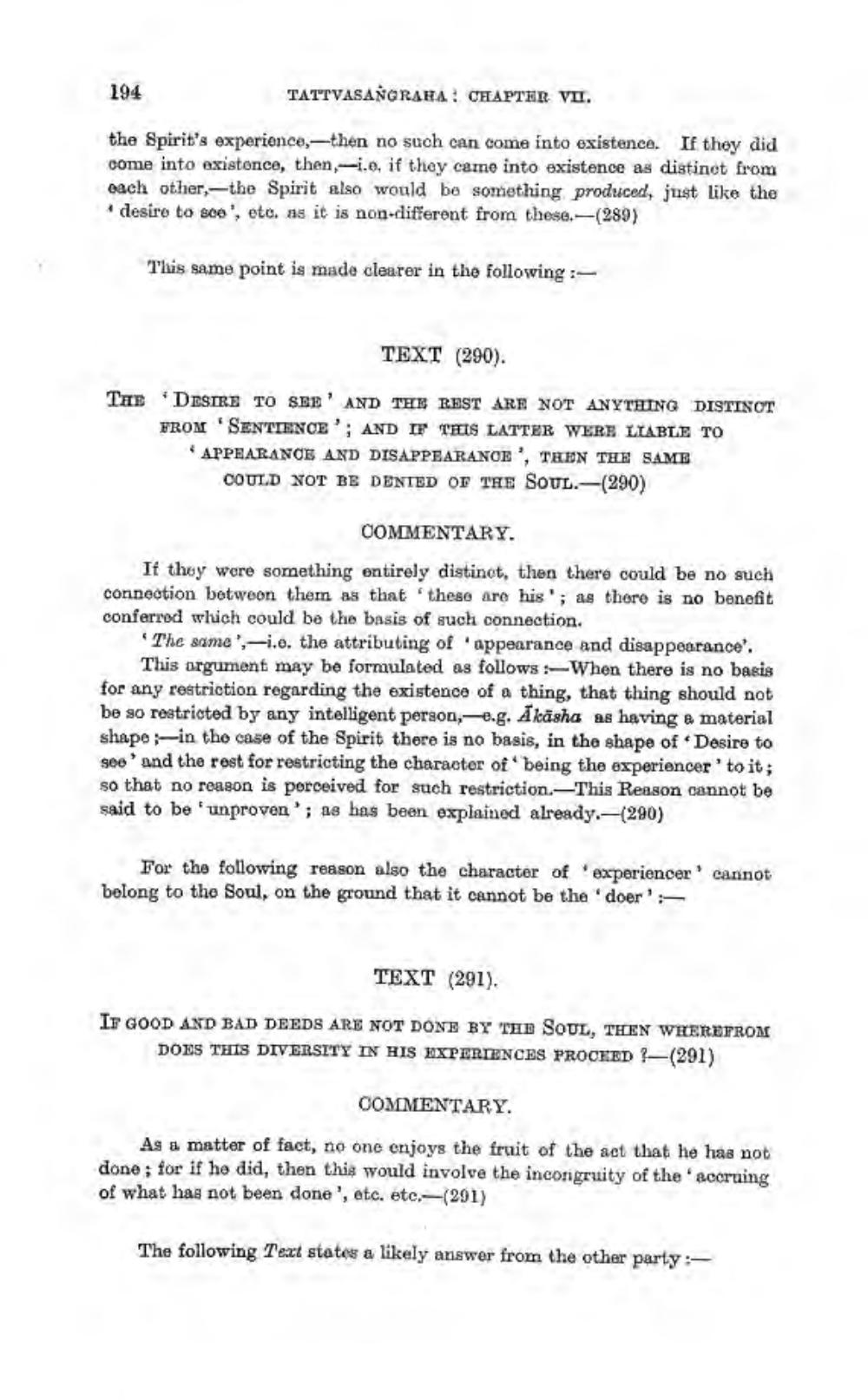________________
194
TATTVASANGRAHA CHAPTER VII.
the Spirit's experience, then no such can come into existence. If they did come into existence, then,-i.e, if they came into existence as distinct from each other,-the Spirit also would be something produced, just like the • desire to see, etc. as it is non-different from these.—(289)
This same point is made clearer in the following :
TEXT (290).
THE
DESIRE TO SEE' AND THE REST ART NOT ANYTHING DISTINCT FROM 'SENTIENCE'; AND IF THIS LATTER WERE LIABLE TO
APPEARANCE AND DISAPPEARANCE, THEN THE SAME
COULD NOT BE DENIED OF THE SOUL.-(290)
COMMENTARY.
If they were something entirely distinct, then there could be no such connection betweon them as that these are his '; as there is no benefit conferred which could be the basis of such connection.
The same',-.e, the attributing of appearance and disappearance'.
This orgument may be formulated as follows - When there is no basis for any restriction regarding the existence of a thing, that thing should not be so restricted by any intelligent person,-e.g. Alcāsha as having a material shape in the case of the Spirit there is no basis, in the shape of Desire to see and the rest for restricting the character of being the experiencer' to it; so that no reason is perceived for such restriction. This Reason cannot be said to be 'unproven'; as has been explained already.-(290)
For the following reason also the character of experiencer cannot belong to the Soul, on the ground that it cannot be the 'doer':
TEXT (291)
IT GOOD AND BAD DEEDS ARE NOT DONE BY THE SOUL, THEN WHEREPROM
DOES THIS DIVERSITY IN HIS EXPERIENCES PROCEED 1-(291)
COMMENTARY
As a matter of fact, no one enjoys the fruit of the act that he has not done ; for if he did, then this would involve the incongruity of the accruing of what has not been done', etc. etc.-(291)
The following Teat states a likely answer from the other party




